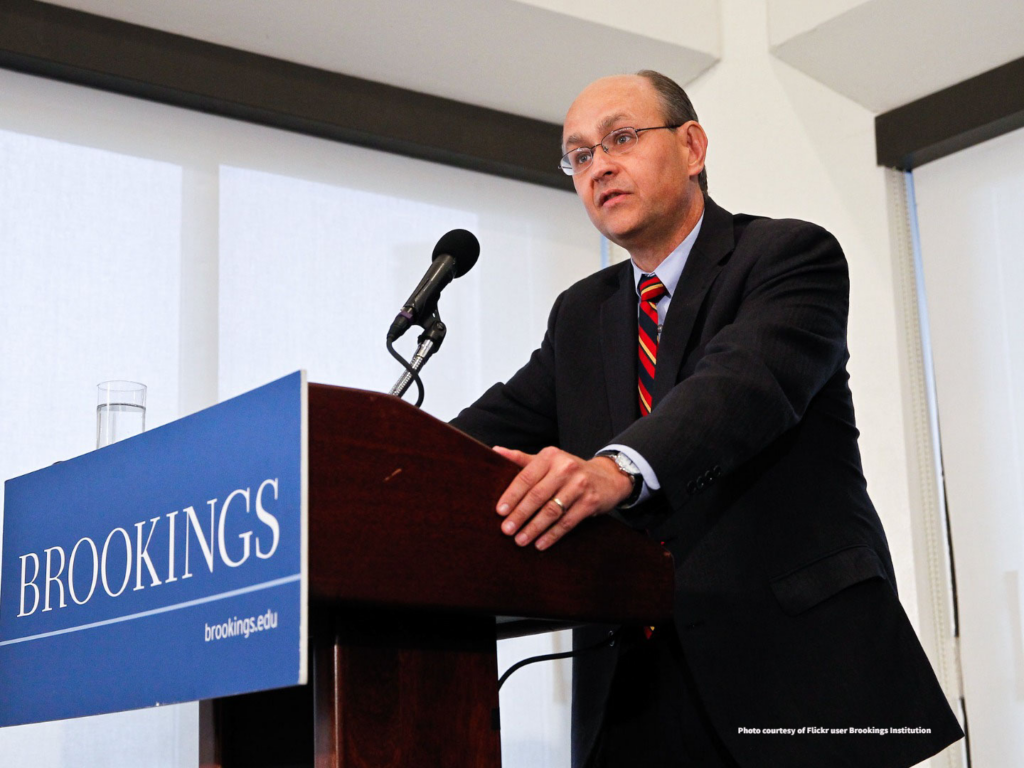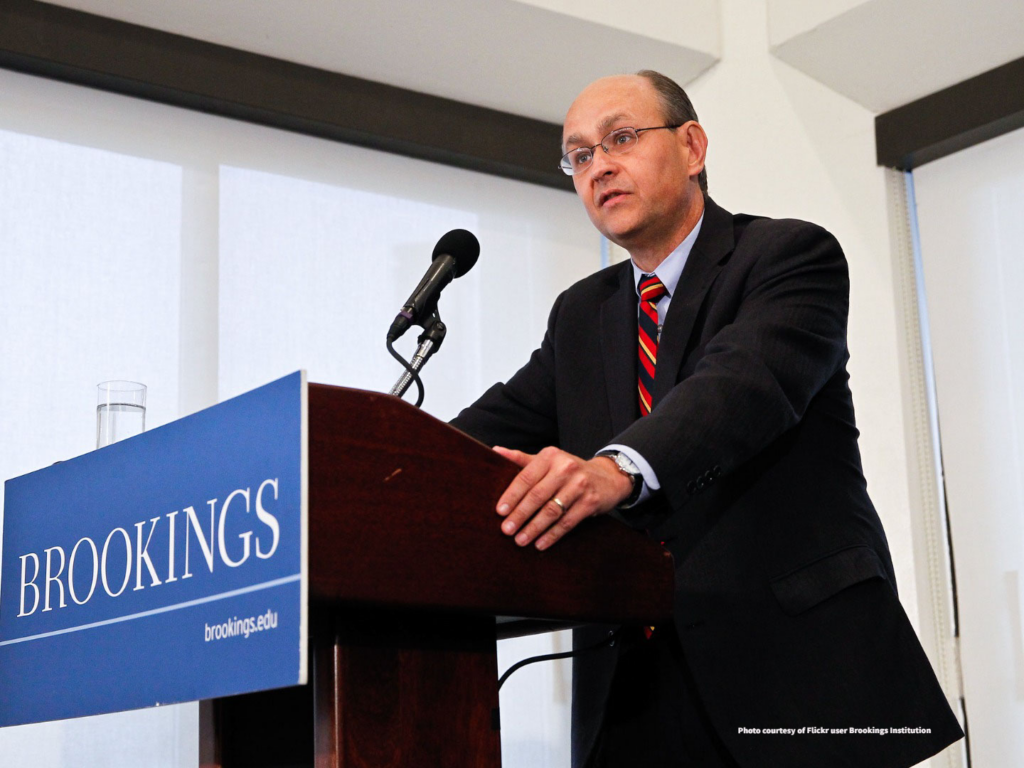Citigroup Global Chief Economist Nathan Sheets delivered his largely pessimistic 2023 global economic forecast on Feb. 6 to Georgetown University students in the Intercultural Center (ICC).
The Georgetown Americas Institute, a research center focusing on key challenges facing Latin America, and the Psaros Center for Financial Markets and Policy, a research center about good financial industry practices and policies, co-hosted the event. Sheets discussed domestic monetary and fiscal policy, U.S.-China trade relations and global market projections during his talk, suggesting overall pessimism for the global economy in 2023.
Sheets projects low economic confidence due to high inflation and aggressive interest rate hikes, saying governments have a lot of work to do to restore consumer confidence in banks.

“Central banks look at the high level of inflation as an existential challenge,” Sheets said at the event. “As they’ve seen the inflation surge, it’s kind of a four alarm fire within the central banking community. And they’re hiking vigorously to try to bring it down.”
Sheets said a key global economic development has been the shift in consumer spending away from goods and toward services, with the United States as a prime example of this transition.
“The strength of services has important implications for the growth outlook, for real GDP, for inflation and for labor markets,” Sheets said. “Of all of the 517,000 total job creations during the month of January, 128,000 was in leisure and hospitality alone, and educational and health services were another 105,000.”
Services markets produce more than two-thirds of the global gross domestic product (GDP). They have become increasingly dominant in the global economy and provide close to two-thirds of jobs in developing countries and four-fifths of jobs in developed countries.
Oversaturated services markets have created large inflationary pressures, which Sheets said the global economy needs to address moving forward.
“Taking some momentum out of the services sector can be a tougher kind of proposition, which kind of boils down to convincing all of us to stop spending so much on services,” Sheets said. “We think that getting inflation down to two percent ultimately is going to be a slog.”
Despite his overall pessimism for the global market, Sheets said it is helpful that different regions of the world operate on different economic timelines because market volatility will be better distributed.
“We see a lot of recession risk in the global economy this year. But an important point is that it doesn’t look like all of the major economies are going to go down together,” Sheets said. “There’s a story in the United States, there’s a story in the Euro area, there’s a story in China, there’s a story in the emerging markets and they’re all pretty different.”
With an increasingly powerful economy, Sheets said China will be a potential major player on the global stage for years to come.
“China’s economy is growing, it’s becoming more powerful,” Sheets said. “A bigger part of the global economy, China itself is more influential.”
Latin America’s strong performance over the past few years is another reason for optimism about the future of the region, according to Sheets.
“Latin American economies were much more resilient than what we were expecting,” Sheets said. “And specifically for Brazil, we were expecting Brazil to have a recession in 2022. That never arrived.”
Sheets said recent data collection suggests governments outside of Latin America have also responded well to current economic challenges.
“Most of the information that we’ve received over the last six week period has been more favorable. And specifically, it’s been better than we thought in the Euro area,” Sheets. “It’s been better in China and the data in the United States have been surprisingly resilient.”
Sheets said he has measured optimism for the 2023 fiscal year in light of the flexibility that global financial institutions have demonstrated in a time of economic uncertainty.
“Significant tightening from the Federal Reserve has performed better than we would have expected,” Sheets said. “And I think that the key question, even if there are recessions, we don’t think they’re going to be extremely deep.”
Sheets tempered his hope about the global market due to difficulties other regions of the world face, including the Russia-Ukraine war continuing to complicate supply chains and trade logistics.
“I’m probably the most pessimistic about Central and Eastern Europe,” Sheet said. “That region right now, for obvious geopolitical reasons, is disrupted.”
Sheets said other geopolitical tensions could also create more economic fragmentation in the long run, especially between the U.S. and China.
“I do see kind of a deeper divide and deeper schism emerging on the tech front between the United States and China. And potentially, if the United States brings in other allies, I think we may move to a world where technology operates in two spheres,” Sheets said. “I don’t know what that means for the global economy. It’s got to be negative.”





















